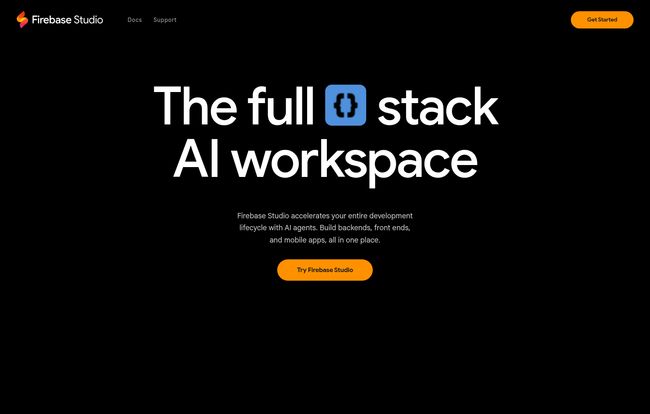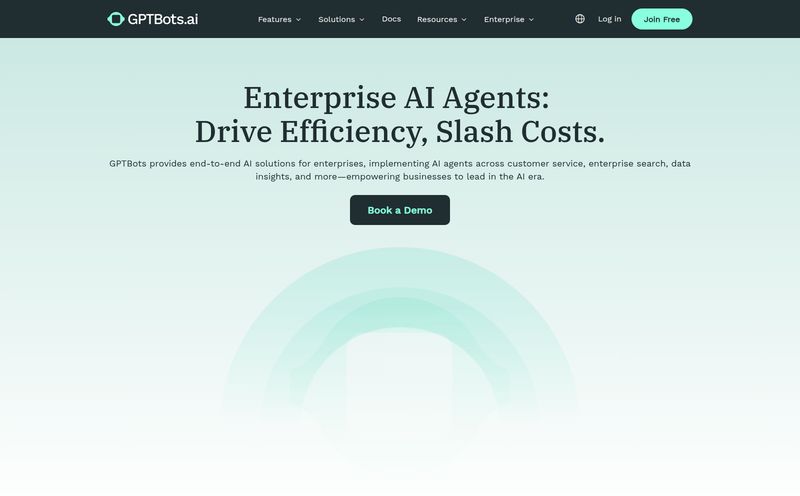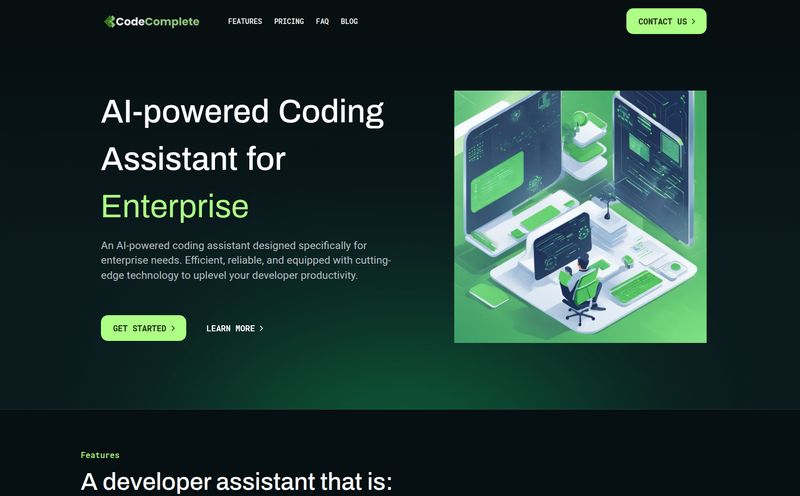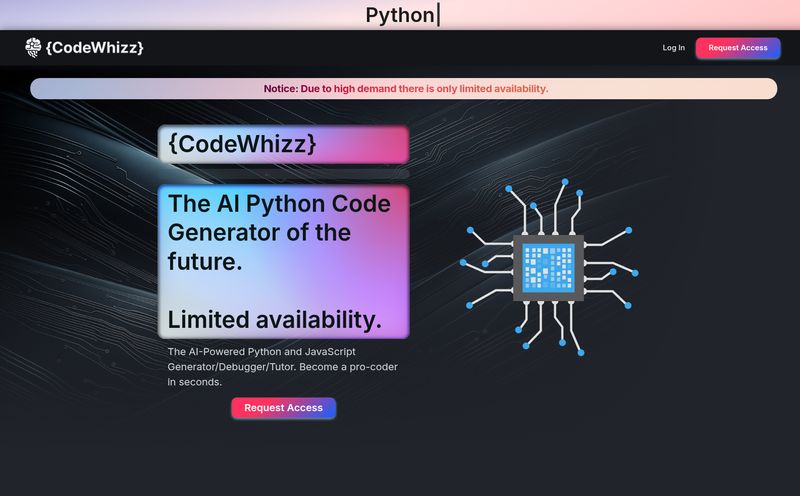How many hours of your life have you lost to setting up a new development environment? You clone a repo, run `npm install`, and… nothing. A cryptic error message stares back. You spend the next four hours wrestling with mismatched Node versions, global dependencies, and environment variables, all while silently screaming, “But it works on his machine!”
It’s a tale as old as time. A frustrating, soul-crushing rite of passage for every developer. For years, we've cobbled together solutions. Docker helped. But what if we could just… skip all that? What if you could open a browser tab and have a complete, full-stack, ready-to-code environment waiting for you?
That’s the massive promise of Firebase Studio. Google’s latest entry into the development space isn’t just another IDE. It’s a full-on, web-based workspace, juiced up with their Gemini AI, and it wants to completely change how we build, test, and deploy applications. After the big splash made by tools like GitHub Copilot, this feels like Google’s definitive answer. But is it the future, or just another shiny object? I’ve been digging in, and I have some thoughts.
So, What Exactly is Firebase Studio?
Think of it like this: Google took the core ideas of a code editor like VS Code, mashed it together with a backend-as-a-service like Firebase, threw in cloud-powered device emulators, and then sprinkled a generous helping of generative AI on top. The result is a single place—a single browser tab—where you can build your backend, code your frontend for web and mobile, and see it all working together in real-time. No installs. No config files. Its a bold claim, and one that could democratize development in a big way.
The official line is that it’s an “entirely web-based workspace for full-stack application development.” For me, it's the potential end of “setup hell.” The idea that a junior dev can join a team and be writing meaningful code in five minutes instead of five hours is… well, it’s pretty exciting.

Visit Firebase Studio
The Gemini Integration: Your New AI Co-pilot
Okay, let's talk about the elephant in the room: the AI. “AI-powered” is the marketing buzzword of the decade, but here it actually feels meaningful. Firebase Studio is deeply integrated with Gemini, Google's flagship AI model. This isn’t just souped-up autocomplete. We’re talking about “AI agents” designed to help across the entire lifecycle.
One of the coolest advertised features is the App Prototyping agent. Imagine describing your app idea in plain English and having the AI scaffold the basic components, data models in Firestore, and even some boilerplate UI for you. That’s the dream, right? It could take you from idea to a functional prototype in a fraction of the time. It’s less about replacing developers and more about getting rid of the tedious, repetitive setup that bogs down the creative process. I’m cautiously optimistic here; the quality of the generated code will be the real test.
A True Full-Stack Workspace in Your Browser
The term “full-stack” gets thrown around a lot, but Firebase Studio seems to be taking it literally. The integration with the broader Firebase ecosystem is the secret sauce here.
Backend, Frontend, and Mobile United
You’re not just writing code in isolation. You’re in an environment that is natively aware of your Firebase project. You can tweak your Cloud Functions, adjust your Firestore security rules, and design your Flutter or web UI, all while seeing the immediate impact. This tight feedback loop is something developers have been trying to build for themselves for years with complex local setups. Having it out-of-the-box is a massive quality-of-life improvement.
No More “Works on My Machine” Drama
This might be the biggest win for teams. The platform uses cloud emulators to give you full-fidelity app previews for both Android and web. When you share a link to your workspace with a teammate, they see the exact same thing you do. The same environment, the same preview, the same behavior. No more version conflicts. No more subtle OS differences causing chaos. It’s a single source of truth. And yes, it plays nice with others. With built-in support for GitHub, GitLab, and Bitbucket, you can pull in your existing projects and push your changes without leaving the Studio.
The Good, The Bad, and The "Coming Soon"
Alright, let's get real. No tool is perfect, especially one that's still in preview. It’s important to look at this with a critical eye.
The advantages are pretty clear. Being web-based means you can code on a Chromebook, a Macbook, a Windows PC—anything with a browser. The AI assistance, if it delivers, could be a huge productivity booster. And the integrated full-stack environment with high-fidelity previews is, frankly, a killer feature set. It simplifies so much of the development workflow, it's hard not to be impressed by the vision.
However, we have to talk about the downsides. The big one is that it's currently in preview. That's code for "expect some bugs, missing features, and potential changes." It's the wild west, and while that's exciting, it's probably not something you want to bet your company's mission-critical app on just yet. There’s also going to be a learning curve. While it aims to simplify things, it's still a new paradigm. Finally, to get increased workspace limits, you need to be part of the Google Developer Program, which adds a small hoop to jump through.
What About the Price Tag?
This is the million-dollar question, isn't it? As of this writing, there is zero information on pricing. In fact, if you try to find a pricing page on their site, you'll be greeted with a friendly "Page not found" error. I actually love this. It’s a perfect, unintentional symbol of the platform’s current state: full of promise, but still under construction.
My guess? It will likely follow the path of other Google Cloud services. I could see a generous free tier integrated with the existing Firebase Spark plan, with paid tiers that offer more powerful workspaces, more AI agent usage, and more collaboration seats. It would make sense to tie it into the Blaze (pay-as-you-go) plan as well. For now, we wait. Keep an eye on the official Firebase Blog for an announcement.
Who is Firebase Studio Really For?
So, should you drop everything and move your entire workflow to Firebase Studio today?
Probably not. But you should absolutely be paying attention to it.
In its current state, I see it being a phenomenal tool for a few groups:
- Indie Hackers & Startups: The speed from idea to prototype is insane. If you want to move fast and validate ideas without getting stuck in setup, this is for you.
- Students & New Developers: It removes the biggest hurdle to learning how to code: the environment. This could be an incredible teaching tool.
- Firebase-heavy Teams: If your stack is already built on Firebase, Auth, and Firestore, Studio will feel like coming home. It’s designed for you.
For large enterprise teams with deeply entrenched and customized CI/CD pipelines, the switch might be a much harder sell. But for greenfield projects? It's a seriously compelling option.
A Glimpse Into the Future of Coding
Firebase Studio is more than just a new product; it’s a strong statement about where Google believes app development is headed. A future that is collaborative, AI-augmented, and accessible from anywhere. It’s ambitious, and it’s still very early days.
There will be bumps. The AI will get things wrong. Some features will feel half-baked at first. But the core idea is so powerful that I can't help but be excited. It's a tool that tackles a genuine, universal pain point for developers. And for that alone, I'm rooting for it. I'll be keeping a very close eye on this one, and you should too.
Frequently Asked Questions about Firebase Studio
What is Firebase Studio in simple terms?
Firebase Studio is an all-in-one development environment that runs entirely in your web browser. It lets you write, test, and preview full-stack applications (backend and frontend) with the help of an AI assistant called Gemini.
Is Firebase Studio free to use?
Currently, Firebase Studio is in a preview phase, and pricing has not been announced. It's likely there will be a free tier, similar to other Firebase services, with paid options for more resources and features once it launches fully.
Do I need to be a Firebase expert to use it?
While existing Firebase knowledge is a plus, the platform seems designed to be a good entry point. The integrated nature and AI assistance could actually make it easier for newcomers to learn the Firebase ecosystem as they build.
How is this different from using VS Code with a bunch of extensions?
The main difference is the seamless integration and cloud-based nature. While you can replicate parts of the experience in VS Code, Firebase Studio provides the server, database connection, and high-fidelity cloud emulators out of the box, all pre-configured and consistent for everyone on your team.
Can I use Firebase Studio for my existing projects?
Yes. Firebase Studio integrates with popular version control systems like GitHub, GitLab, and Bitbucket, so you can connect it to your existing repositories and work on your current projects.
What is the role of Gemini AI in Firebase Studio?
Gemini acts as an intelligent coding partner. It can help with tasks like generating boilerplate code, scaffolding an entire app prototype from a description, assisting with debugging, and answering development questions directly within your workspace.
Reference and Sources
- Official Firebase Studio Homepage
- The Official Firebase Blog
- Firebase Studio Pricing Page (Currently 404)



